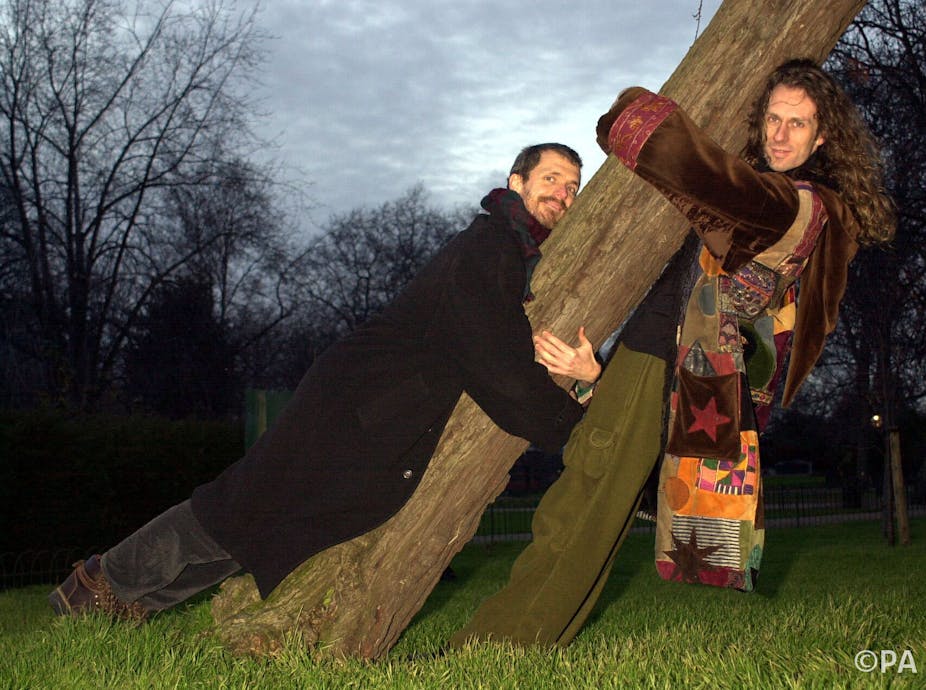In the financial crisis and long global recession, millions have been forced to change their lifestyles to get by. When jobs, homes or businesses have been lost, many have had to change habits, hobbies, how they work, shop and use leisure time.
But environmentally unsustainable development will have even greater effects, threatening disruption to our climate, food systems and water supplies. These challenges can’t be met through technological innovations alone. Especially in the affluent West, we need to make potentially radical changes to our lifestyles. Can we learn lessons from the changes many people have had to make in order to cope with major life events?
Communicating the complexities of the need for lifestyle change on environmental grounds is hard to do. Policymakers and environmental campaigners have struggled to promote pro-environmental lifestyle changes. In recent years the emphasis in the UK has been on individual and household behaviour, through information campaigns like Defra’s “Act on CO2” advertisements or financial incentives such as Green Deal loans for energy efficiency improvements.
This approach assumes that we as individual “consumers” will respond to information and incentives to change our attitudes and behaviour. But will we? There is a wealth of evidence to suggest that this individualistic approach quickly reaches its limits.
Our investigation programme into environment, values and lifestyles shows that making lifestyle changes is hard - even for people committed to sustainable values. This is echoed by many studies: committing to live a sustainable lifestyle is tough work. People feel as if they are always going against the grain, as the support that could make these often significant changes convenient, socially validated and self-reinforcing very often isn’t there.
The choices we make are not merely individual decisions based on weighing up information, costs and benefits. We consume socially, taking cues from multiple contexts - what our peers do, what we’ve done before, what cultural norms apply, what the infrastructure around us makes easy or hard. So lifestyles are not the sum total of our consumer transactions. They are complex patterns of habits, practices, choices, hopes, fears, associations, commitments and stories that are our personal versions of the culture around us.
So the individualistic model of “behaviour change” can only take us so far. As well as good information, we need changes in the cues, incentives and meanings that we draw from everything around us.

Habits: breaking up is hard to do
How do we change these everyday contexts? One major strand of our work in the Sustainable Lifestyles Research Group is the idea of habit discontinuity. Our research on this theme examines moments of transformational change in people’s lives - such as moving house, having a first child, or entering retirement. At such times, everyday routines and social networks come under pressure, and it is then that we might be more ready and able to change our habits.
Designed to test this idea, our Exploring Lifestyle Changes in Transition (ELiCiT) study has examined diaries, questionnaires and interviews from 80 households undergoing one of these major transitions. Half the households have recently had their first child, while in the other half of the sample a family member has recently retired.
Patterns are emerging from ELiCiT, though much analysis remains to be done. One theme is that when a major, transformational change occurs it tends to generate others, or that several come at once. For example, some new parents plan to move house and/or have a second child, and some anticipated changes to their partner’s job and status. There are many resulting changes - in the parents’ daily routines, their financial situation, where they lived, and the needs of the baby. All expected that these changes would keep altering their daily practices, such as shopping or leisure pursuits.
Similar fluidity is seen among retirees, many of whom find themselves working on new projects after official retirement. They also face changes precipitated by other family transitions - such as becoming much more involved in the care of grand-children.
The research also underlines what other studies have suggested, that there is a strong connection between consumer habits, identity and family roles. For example, there are strong links between grocery shopping and the values attached to caring for family. This complicates the task of influencing everyday behaviour. Habits are hard to alter not only because they are deeply ingrained, but because they are bound up with values and associations that we hold as key parts of our identity. For example, offering “treats” - in the form of maybe unhealthy and unsustainable food - can often be a very hard habit to break or alter, as it is so closely linked for many people with showing love and care to their nearest and dearest.
The generation nearing or entering retirement is often associated with “baby boomer” affluence and low concern for future generations. But our research suggests that older people are strongly influenced by values of thrift and frugality absorbed during postwar childhood. This could be one angle from which to approach changing behaviour; our work also highlights the positive contribution older people can make to sustainable living through their local communities, voluntary bodies, and their roles in child care across generations.
The need to move away from unsustainable lifestyles in the affluent world is vital. But ELiCiT and related studies show this will not come about unless policies to promote sustainable living take as a starting point the rich complexities of our home lives and the social fabric around them, and not the abstract idea of “a consumer” in isolation.

